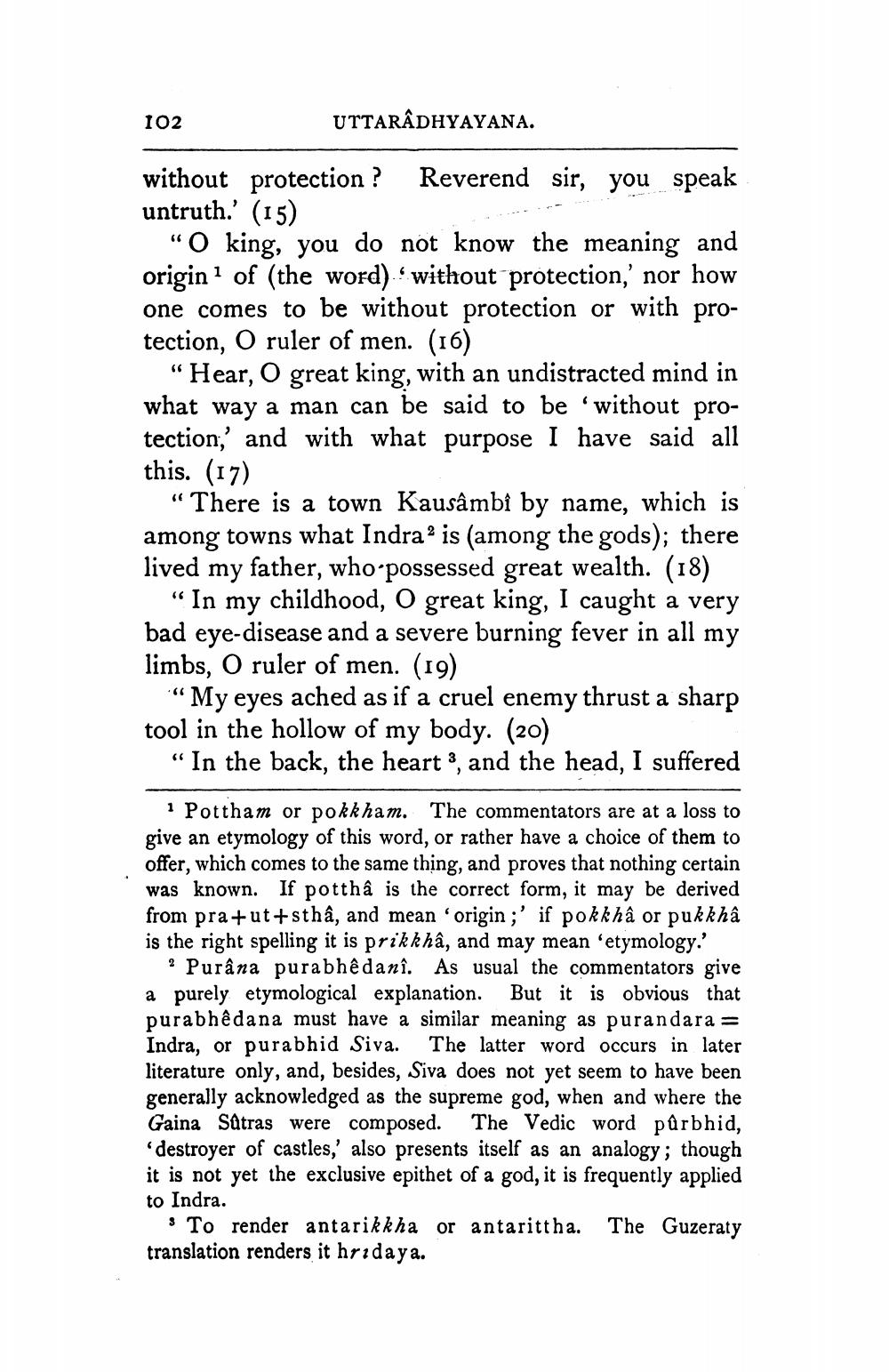________________
102
UTTARADHYAYANA.
without protection ? Reverend sir, you speak untruth.' (15)
"O king, you do not know the meaning and origin of (the word). without protection, nor how one comes to be without protection or with protection, O ruler of men. (16)
"Hear, O great king, with an undistracted mind in what way a man can be said to be 'without protection,' and with what purpose I have said all this. (17)
"There is a town Kausâmbỉ by name, which is among towns what Indra2 is (among the gods); there lived my father, who possessed great wealth. (18)
“In my childhood, O great king, I caught a very bad eye-disease and a severe burning fever in all my limbs, O ruler of men. (19)
"My eyes ached as if a cruel enemy thrust a sharp tool in the hollow of my body. (20)
“In the back, the heart 3, and the head, I suffered
1 Pottham or pokkham. The commentators are at a loss to give an etymology of this word, or rather have a choice of them to offer, which comes to the same thing, and proves that nothing certain was known. If pottha is the correct form, it may be derived from pra tut+stha, and mean 'origin ;' if pokkhâ or pukkha is the right spelling it is prikkhâ, and may mean 'etymology.'
? Purâna purabhê danî. As usual the commentators give a purely etymological explanation. But it is obvious that purabhêdana must have a similar meaning as purandara = Indra, or purabhid Siva. The latter word occurs in later literature only, and, besides, Siva does not yet seem to have been generally acknowledged as the supreme god, when and where the Gaina Sätras were composed. The Vedic word pûrbhid,
destroyer of castles,' also presents itself as an analogy; though it is not yet the exclusive epithet of a god, it is frequently applied to Indra.
To render antarikkha or antarittha. The Guzeraty translation renders it hridaya.




